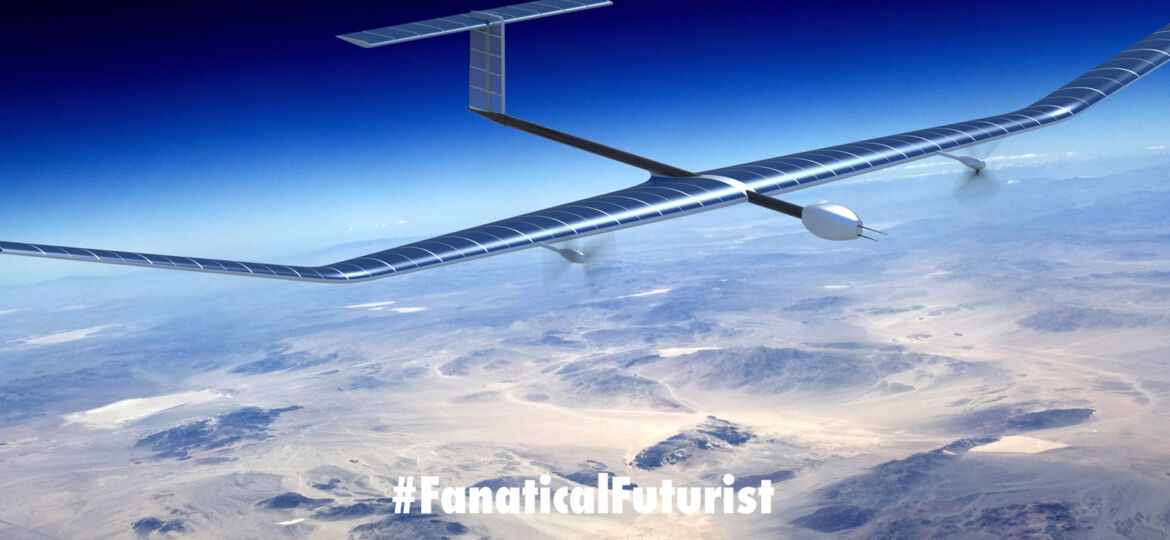
WHY THIS MATTERS IN BRIEF
The aviation industry is one of the world’s biggest polluters so companies around the world are trying to find new ways to power aircraft.
Recently I talked about SolarStratos, a company that’s looking to produce “the world’s first commercial solar aircraft,” and a couple of weeks ago on the other side of the world a solar powered aircraft from the European aerospace giant Airbus completed a maiden flight lasting 25 days, 23 hours, and 57 minutes.
The new Zephyr S HAPS (High Altitude Pseudo-Satellite) took off from Arizona and went on to complete “the longest duration flight ever made,” Airbus Defence and Space said in an announcement Wednesday who also submitted an application to confirm the flight as a new world record.
Airbus promo reel (no sound and yes, it gets boring after 40 seconds)
The unmanned aircraft, a 75 kilogram Zephyr, offers what Airbus describes as “local satellite-like services” and runs exclusively on solar power. It operates in the stratosphere at an average altitude of 70,000 feet and has a wingspan of 25 meters.
“This very successful maiden flight represents a new significant milestone in the Zephyr program, adding a new stratospheric flight endurance record which we hope will be formalized very shortly,” Jana Rosenmann, head of unmanned aerial systems at Airbus, said in a statement.
“We will in the coming days check all engineering data and outputs and start the preparation of additional flights planned for the second half of this year from our new operating site at the Wyndham airfield in Western Australia,” Rosenmann added.
Solar powered aircraft offer an intriguing glimpse of what the future of aviation could eventually look like, especially as other industry giants, including Boeing and Rolls Royce begin to eye the start of electric flight, in part thanks to new battery advancements, in 2030.
















